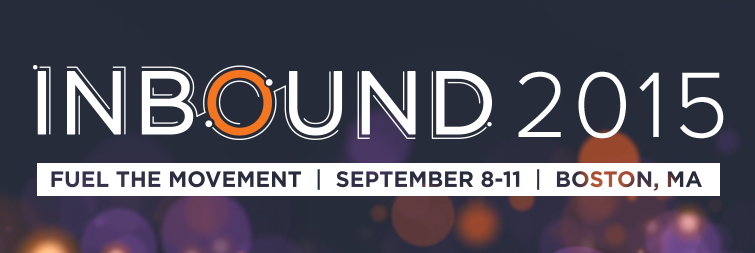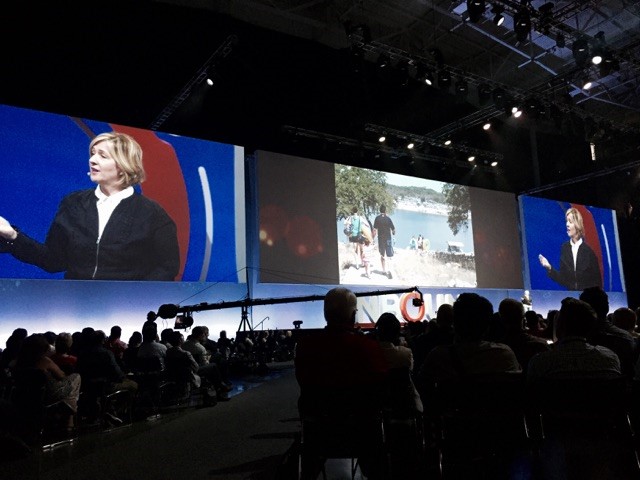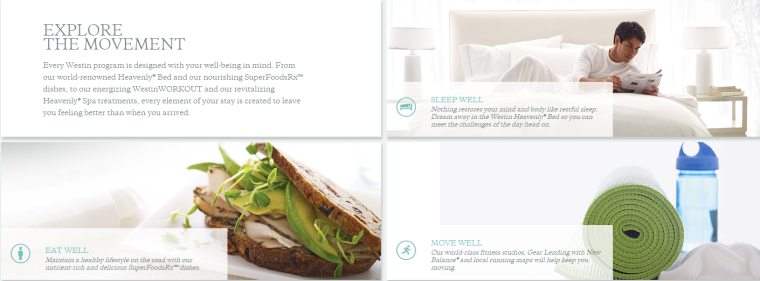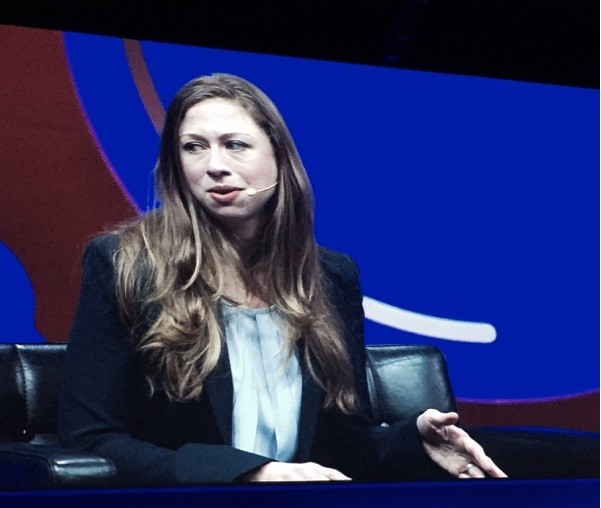Editor Note: We received a press pass from INBOUND and Hubspot.
“This is not a conference. It’s a movement. It’s the INBOUND MOVEMENT.”
These words were plastered across a screen the size of a swimming pool in a room larger than a football field. HubSpot’s four-day Inbound marketing conference kicked off on September 8th with a room filled with 14,000 eager marketers, and it was clear from the outset that this wasn’t going to be a typical marketing conference.

I spent last week navigating through the maze of sessions, keynotes, and bold talks, trying to soak up every last bit of knowledge I can share with you. As a third-year attendee and frequent conference goer, I notice there is always one consistent theme at Inbound: inspiration.
No, I do not have data to back this up, but I’m confident that the majority of marketers leave feeling inspired. And how could they not? With speakers from marketing legend Seth Godin, to the famous TED talker and author Brené Brown, not to mention entertainment from comedians Amy Schumer and Aziz Ansari, it’s hard to not leave with a pep in your step.
Marketers: your time to change is now! I challenge you to transform your marketing (and even your life) with these inspiration Inbound takeaways from an array of brilliant minds.
#1: People Who Take Responsibility Get Responsibility. Stop Focusing on Authority – Seth Godin, Best-Selling Author
Marketing maven Seth Godin kicked off the show by challenging the audience to stop being lazy idiots and start owning up to their work. Those may not have been his exact words, but Godin gracefully explained that people need to stop seeking approval and adhering to authority and start taking responsibility.
The problem? We’re wired to steer away from responsibility.
“There’s no such thing as writer’s block. Rather your lizard brain doesn’t want you to take responsibility,” says Godin.
It’s easy to think, “Well, that’s not in my job description” or “I’m not sure I’d be allowed to do that.” But, waiting around for direction and not accepting the fact that you might fail will get you nowhere.
“We make change happen by being human, connecting, being generous, and doing something that might not work.”
Godin challenges attendees to ask yourself: What connection can be made? What changes need to occur? What can I build?
TAKEAWAY: The less reassurance, the more important the work is. Speak up in meetings, write, and take responsibility.
#2: Dare to Be Vulnerable at Work and In Life – Brené Brown, Research & Storyteller
My previous hatred for running led me to faking an asthma diagnosis during my high school years, so post-college when I told my family and friends that I signed up for a half marathon, they were all at a loss for words. I felt vulnerable. What if I can’t do it? What if I back out? Should I back out? Since that day over three years ago, I’ve ran eight half and two full marathons.

Making the decision to face my vulnerability and tackle 13.1 miles made my palms clammy and my heart skip a beat, but if I hadn’t, my fulfilling passion for running would likely be non-existent.
“Vulnerability is the ability to show up and be seen when you have no control of the outcome,” says Brené Brown. “Vulnerability is not weakness, it’s the greatest measure of courage.”
The outcome in my story was positive, but they won’t always be. You will fail at a work project. You will get your heart broken. You will fall on your face.
But Brown challenged the audience to stop running from vulnerability. Don’t leave yourself thinking: “What if I showed up? What if I tried that? What if I said ‘I love you’ first?” she says.
TAKEAWAY: We’ve all failed. The people who are bold enough to be vulnerable rather than stashing these stories away in a closet are the ones who are much more likely to lead a successful and fulfilling life.
#3: If You Want to Change What Someone Does, You Need to Change What They Feel – Michael Troiano, CMO at Actifio
Think about the biggest decisions you’ve made in life. Was having three kids or marrying your spouse a logical decision? No, chances are it was driven by emotion.
“The biggest decisions are based on emotional drivers,” says Troiano. At first glance, Troiano’s large stance made him appear intimidating, but there was something so likable and understated that made his presentation intriguing.
Troiano’s talk was all about building a memorable brand. The problem is that marketers typically think about branding as a symbol or slogan and don’t think about the people they’re trying to win over.
“A brand is the world’s collective emotional response,” he says. “We experience the world first emotionally.” The reason we chose one brand over another is based on emotion.
Troiano explained how he hates the terms B2B and B2C because “Companies don’t decide to buy. People within companies decide to buy,” he says. So, how do you ensure your brand is resonating and positively impacting your customer’s emotions? Reflect on your customers, simplify your promise, and deliver it consistently.
Troiano’s favorite example of a brand that got this right is Westin hotels. Westin launched the “Well-Being Movement,” which speaks to living a healthy lifestyle. Westin likely identified that the biggest problem guests’ face is staying healthy when on business trips or family vacations.
With that in mind, the brand created a well-being campaign across their products and customer experience. For instance, they provide each guest with water upon arrival reading “Drink Well,” to ensure they’re staying hydrated. As you can see below, their messaging is consistent with language such as “Eat Well, Sleep Well, Drink Well, Move Well.”
Why does Troiano love this brand so much? They’ve awakened his emotions. “I feel like they care about me,” he gushed.

TAKEAWAY: Connect with your audience on an emotional level to spur them to become brand ambassadors.
#4: Start Seeing Problems as Springboards for Opportunity – Darren Rowse, Founder of ProBlogger
In the fast-paced bold talks, Darren Rowse took the stage immediately charming the audience with his charming Australian accent (an unfair advantage to getting higher speaker ratings, if you ask me).
In 2002, Rowse received an email saying “check out this blog.”
“I had no idea what a blog was, but I started my own blog that day,” he says. Now Darren’s blog, ProBlogger, receives 5 million visitors per month, and he serves as a full-time blogger and successful entrepreneur.
Of course, like every human, Darren has faced failure, but the key to becoming a successful entrepreneur is not viewing problems as roadblocks.
All too often a problem arises, and we cringe as the tension in our shoulders heightens. Darren challenges the audience to stop shying away from problems and start seeing them as opportunities to succeed. “Success is rarely the path of a straight line,” says Darren.
TAKEWAY: Don’t divert from problems, rather let them spur you into action.
#5: Be Honest About What Failure Feels Like – Brené Brown, Research & Storyteller
Clearly, Brown’s keynote stuck with me as the most inspirational talk during Inbound because she makes the list yet again. This point hit home because it’s unbelievably true. Most inspirational messaging around failure preaches to “fail fast, fail often, fail everywhere”. We’ve heard it all before, whether it be amongst the Silicon Valley risk-takers or from various conference keynotes or TED talks.
While these failure messages are great, “no one talks about what failure feels like,” says Brown. “It hurts and it will take your breath away.”
Brown explained how in order to overcome and grow from failure we need to start being honest about what it feels like. When your team fails at work you shouldn’t go in with a smile on your face pretending all is well and dandy, but rather, tell them you thought about having two glasses of wine on your 7:00 AM commute to work. 75% of people who overcame failure wrote down their stories about how shitty it felt to fail.
TAKEAWAY: In order to grow from failure, we must address how it feels.
#6: Instead of Thinking ‘I Should,’ Think ‘I Want’ – Brian Clark, CEO of Rainmaker Digital & Copyblogger Founder
Just from Clark’s title and background, it’s easy to understand he’s a pretty successful dude. Clark founded nine companies, eight of which are successful, and from his experience as a talented writer and entrepreneurial genius, he’s learned a thing or two.
The main message he spoke to at Inbound is that people need to stop doing what they think they should be doing, and start doing what they want to do.
Clark spoke about our psychological self, in which we spend our childhood as “actors,” playing the role that our parents want us to. Then we graduate out of childhood into the “agent” stage where we start to form goals and ideas of what we want to become. The last layer is the “author,” which is when we take claim of our own stories.
The issue is people often become stuck as actors, doing what they think they should be doing, not what they want to do.
Clark challenged the audience to say “I am the protagonist and writer of this story.” This can be uncomfortable and feel risky, but in order achieve excellence one must take full control of their story, and realize they’re capable of changing it at any time. “We need to seek autonomy and control in our pursuits, and it must be on our own terms,” he says.
TAKEAWAY: Write your own story.
#7: Life is Not About What Happens to You, It’s About How You Respond – Chelsea Clinton
Lastly, after belly laughing the night away to Amy Schumer’s hysterical comedy show at Inbound Rocks, my hangover and I took a seat for the last morning keynote from the inspiring Chelsea Clinton.
Things took a more serious note as Clinton spoke about the inequality women still face all over the world, even in the U.S., in terms of pay, violence, forced marriage, and education. The statistics she shared were shocking and saddening, but it is encouraging to see that we have made (and will continue to make) progress.
The main quote that stuck with me is that “Life’s not about what happens to you, but rather how you respond to it.” There are factors in life we cannot control, like where we were born or things that happen to us, but we can control what we do in response to those factors. Don’t let a bad boss destroy your work environment. Don’t let a bad break-up or divorce ruin your trust in people. Take charge of your own life.
TAKEAWAY: Be bold and don’t let the circumstances control you — you are in control of how you act.

Overall it was a great conference and I learned a lot. If you attended INBOUND 2015, what were your favorite parts?
Image Credit:
Featured Image & Image 1: Screenshot from HubSpot.com taken on 9/13/2015
Image 2: Taken by author on 9/9/2015
Image 3: Screenshot from http://westinwellbeing.starwoodpromos.com/ on 9/11/2015
Image 4: Taken by author 9/11/2015




